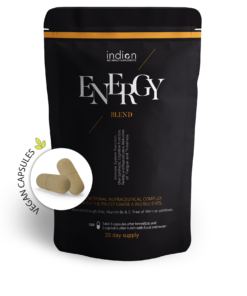Neurotransmitters are chemicals that transmit messages between nerve cells, or neurons. They are essential for communication within the nervous system and for various functions in the body, including muscle contraction, heart rate, and digestion.
There are many different types of neurotransmitters, each with its own specific function. Some of the most important ones include acetylcholine, serotonin, dopamine, and GABA.
Acetylcholine
Acetylcholine is responsible for transmitting signals between neurons that control muscle movement. It also plays a role in memory and learning. It is a neurotransmitter that is released at the neuromuscular endplate. It is responsible for the speed and force of muscular contraction. ACh also plays a role in attention and concentration. The more fast-twitch muscle fibers a person has, the more acetylcholine they produce. This is why activities that require quick bursts of energy, such as Formula 1 racing and boxing, tend to be dominated by people with high levels of ACh.
Acetylcholine is sometimes referred to as the “speed neurotransmitter” because of its ability to increase heart rate and blood pressure. This can be beneficial in situations where quick thinking and reaction time is necessary, such as in sports or emergencies. However, too much acetylcholine can also be detrimental, causing anxiety and restlessness. Therefore, it is important to maintain a balance of acetylcholine in the body.
Dopamine
Dopamine is involved in regulating mood, motivation, and pleasure. It also helps to control movements and balance.
Dopamine is a neurotransmitter that is linked with many different functions in the brain, including motivation, pleasurable reward, and muscle movement. It is often referred to as the “success neurotransmitter” because it plays a role in how we experience success. Dopamine is released when we achieve our goals, and this release is associated with feelings of happiness and satisfaction. When dopamine levels are low, we may feel less motivated and may struggle to find pleasure in activities that we typically enjoy. Increasing dopamine levels can be helpful for those who want to increase their drive and improve their learning effect. This can be done through dietary changes, supplements, and exercise. By increasing dopamine levels, we can train our brains to experience more success and make greater progress toward our goals.
GABA
GABA is a neurotransmitter that helps to regulate the excitability of neurons in the brain. In general, it acts to inhibit the signals between neurons, which helps to calm the nervous system. This can be beneficial in times of stress when our brains are bombarded with too much information and need to focus. GABA supplements are sometimes taken in order to promote relaxation and reduce stress levels. In addition, GABA has been shown to play a role in regulating blood pressure and heart rate. It is also involved in the development of new brain cells, and may help to protect against age-related mental decline. Overall, GABA plays an important role in maintaining nervous system function and promoting relaxation.
GABA is the most abundant neurotransmitter in the peripheral nervous system. It is frequently used in sports medicine to help relax the body and reduce pain. GABA levels are also closely linked to volume tolerance. The higher the GABA levels, the more volume can be tolerated. This makes GABA a valuable tool for athletes who are looking to increase their training volume. However, due to the widespread use of electronic devices, GABA levels have become increasingly depleted. This is one of the most common deficits that we see in our patients. Fortunately, several things can be done to increase GABA levels. Regular exercise, a healthy diet, and supplements all help to boost GABA levels and improve volume tolerance.
SEROTONIN
Serotonin is a neurotransmitter that helps to regulate mood, sleep, and appetite.
Serotonin is involved in a variety of processes, including mood, appetite, and sleep. It is thought to play a role in depression and anxiety. Serotonin is also a precursor to melatonin, the hormone that helps regulate sleep. The majority of serotonin is found in the gut, with a smaller amount present in the brain. Serotonin is produced in neurons and then released into the Synapse, where it can bind to receptors on other neurons. Once serotonin has been released, it is either broken down by enzymes or reabsorbed by the original neuron (a process known as reuptake). This regulates its concentration in the synapse and determines how long it will be active. Serotonin has many different functions, but its most well-known role is as a feel-good neurotransmitter. When levels are low, people may feel depressed or anxious. When levels are too high, people may experience mania or hallucinations. The right balance of serotonin is essential for good mental health.
INOSITOL
Inositol is a simple sugar that is found in plants and animals. It is also known as vitamin B8, although it is not technically a vitamin. Inositol is an important component of cell membranes, and it plays a role in lipid metabolism. It is also the precursor for several signaling molecules, including inositol trisphosphate and phosphoinositides. These molecules are involved in calcium signaling, cell growth, and neurotransmission. In addition, inositol has antidepressant and anxiolytic effects. It is thought to work by increasing levels of serotonin and other neurotransmitters in the brain. Clinical studies have shown that inositol supplements can be effective for treating depression, anxiety, and obsessive-compulsive disorder.
Conclusion
Neurotransmitters are essential for many different functions in the body and play a vital role in maintaining health and wellbeing. The imbalance or deficiency of certain neurotransmitters has been linked to various health conditions, such as Alzheimer’s disease, depression, anxiety, and schizophrenia.
Neurotransmitters are chemicals that allow messages to be transmitted from one neuron to another. They play a vital role in our everyday lives, impacting everything from our moods and emotions to how well we sleep and how hungry we are. By understanding more about the different types of neurotransmitters and what they do, we can work together to create an environment that supports optimal health and wellbeing. So far, we’ve looked at serotonin, dopamine, and GABA. Each of these neurotransmitters plays an important role in our physical and emotional health. Next time, we’ll explore norepinephrine and endorphins – two other important players in the neurochemical orchestra.
Nutritional supplements
€39,90
Nutritional supplements
€39,90
Nutritional supplements
€59,90





